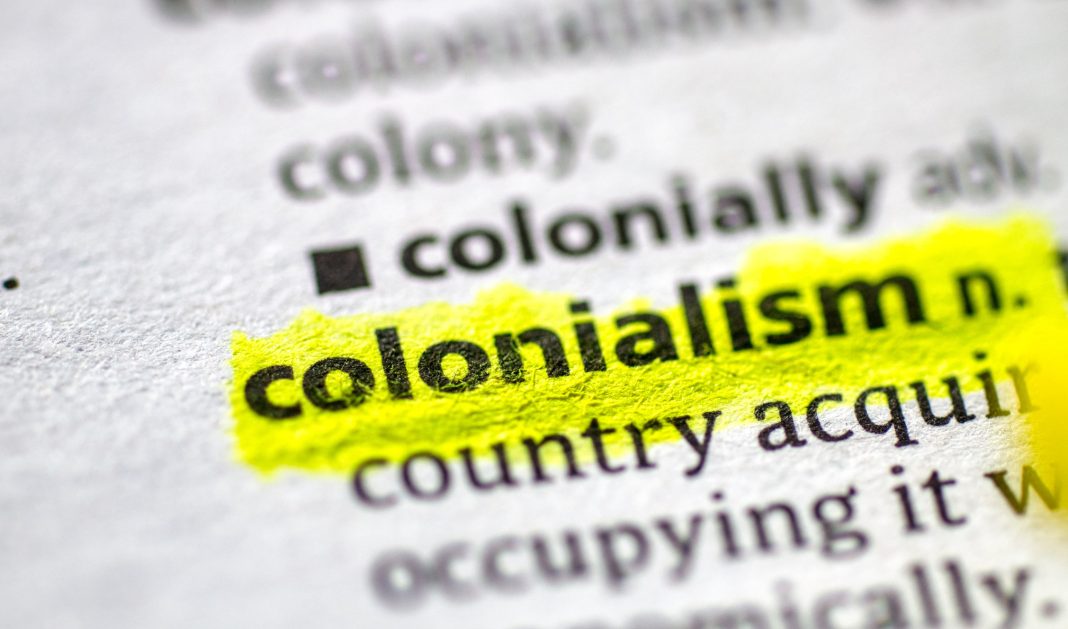Geraldine Balzer from the University of Saskatchewan asserts that our stories are found when the Empire comes home; in this impact of colonialism focus
My journey to understanding the impact of colonialism in education and reflecting on how to decolonize my teaching began over thirty years ago in a remote Inuit community in the Canadian Arctic. I loved the world of literature, often losing myself in books, living in worlds that became real as the words on the page found a home in my expansive imagination. However, this was not the experience of my students when they engaged with the same texts that delighted me.
Shakespeare, Tolkien, Steinbeck, and Lee – the mainstays of the established curriculum failed to engage. “Where are our stories?” was frequently asked as students considered the Amer-Eurocentric reading choices, commonly known as the school canon, on the bookshelves. John Guillory (1993) recognized how the prescribed literature created cultural capital and maintained the status quo:
The literary syllabus is the institutional form by means of which this knowledge [reading and writing] is disseminated, and it constitutes capital in two senses: First, it is linguistic capital, the means by which one attains to a socially credentialed and therefore valued speech, otherwise known as “Standard English.” And second, it is symbolic capital, a kind of knowledge capital whose possession can be displayed upon request and which thereby entitles its possessor to the cultural and material rewards of the well-educated person. (p. ix)
The cultural capital gained through this canon served the colonial Empire well but has resulted in the loss of languages and cultures, creating a sense of homelessness and a loss of belonging in the place that had been home, yet does not foster belonging in the resulting diasporic communities.
Colonized peoples seeking their stories
Around the globe, colonized peoples, like my students, were seeking their stories; others were using their linguistic capital to write those stories, some in their home communities and lands, others from the metropolitan centers of the colonial empires. Ashcroft, Griffiths, & Tiffin (2002) consider the impact of this phenomenon on identity and place:
What does ‘home’ mean in the disrupted world of colonial space? How can ‘home’ become the transformative habitation of boundaries? For certainly that unheimlichkeit, that ‘unhousedness’ or ‘uncanniness’ which characterizes much colonial displacement, is a primary force of disruption in postcolonial life. Can it also be a source of liberation? (p. 218)
For my Indigenous students, finding their stories was a source of liberation, a first step in decolonizing a classroom; for their teacher, their question began a quest that continues to this day – how do we decolonize an entrenched education system when so much is dependent upon the status quo?
The current political climate in the Western world, with the rise of right-wing parties, Christian Nationalism, increased racism and xenophobia, and diaspora caused by wars and climate crises, highlights the need for new ways of thinking. Decolonization must be more than a political action tied to the creation of independent nation-states; it requires a decolonization of the mind as well, of ways of seeing the world that disrupt stratification and existing power structures.
Fung (2019), commenting on her experience as a member of the Asian diasporic community, notes that “The Canadian experience cannot be removed from the Canadian imaginary, which, as a byproduct of culture being produced in this country, continues to serve and protect a white masculine settler-colonial hegemony” (p. 18). Decolonizing education challenges teachers and administrators to disrupt the white masculine hegemony globally while examining how this dominance is perpetuated in current neoliberal economies.
More on decolonization
Decolonization is a political act. Ensuring that we are exposed to a diversity of stories is one step on the journey of disrupting the hegemonic power structures. Justice (2018) considers the importance of Indigenous stories in this journey of decolonization:
This is a book about stories, and how and why they matter. It’s about the stories we tell, the stories others tell about us. It’s about how stories can either strengthen, wound, or seemingly erase our humanity and shared connections, and how our stories are expressed or repressed, shared or hidden, recognized or dismissed. Stories are bigger than the texts and the bodies that carry them. When absent, they leave gaps that communicate as surely as the presences. These last thoughts are about what happens when meaningful stories of our place and belonging are denied us, and how, through their returning, we can knit the jagged edges of our histories across the woundings of time, space, and experience. (pp. 183-184)
Decolonization begins with the stories we tell and the stories that are told. Ensuring our students, educators, citizens, and leaders are exposed to a diversity of stories is the first step. Access to a diversity of stories must be paired with an education system that cultivates critical thinking and empathy, fostering relationships with our neighbors across the street and around the world so every citizen of this planet can find their way home. Only when all members of a society can safely tell their stories can we begin knitting the jagged edges of our histories and heal the woundings of time, space, and experience.
References
- Ashcroft, B., Griffiths, G., & Tiffin, H. (2002). The Empire writes back (2nd ed.). New York: Routledge.
- Fung, A. (2019). Before I was a critic I was a human being. Book*Hug Press.
- Guillory, J. (1993). Cultural capital: The problem of literary canon formation. Chicago:University of Chicago Press.
- Justice, D. H. (2018). Why Indigenous literatures matter. Wilfrid Laurier University Press.

This work is licensed under Creative Commons Attribution-NonCommercial-NoDerivatives 4.0 International.


